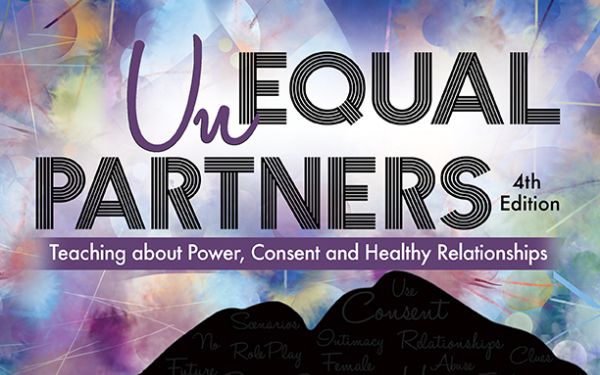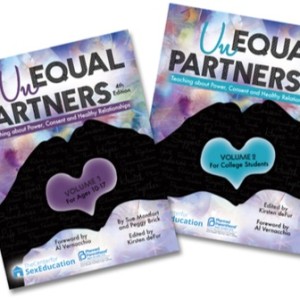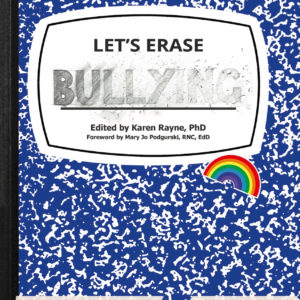
This past week has seen the shocking revelation that Miki Agrawal, the former CEO of Thinx (the makers of “period underwear”), was fostering a “hostile environment” for her employees. And the most recent story to come to light is that she was sexually harassing her employees, engaging in unwanted groping, inappropriate office talk, and more.
What makes this most upsetting was that Agrawal had built up her startup on a foundation of feminist ideals and body positivity. Stories like these serve as just one more reminder that issues of consent—enabled by uneven power dynamics—can emerge in the unlikeliest of places. And shows why consent dynamics need to be taught early on.
Last year, we released the fourth edition of Unequal Partners: Teaching About Power, Consent, and Healthy Relationships. As part of our 500 Lessons in 500 Days series, I wanted to share a glimpse of just one of the lessons in that manual.
MORE THAN “JUST FRIENDS”?
By Sue Montfort, MAT, CHES and Peggy Brick, MEd, CSE
Objectives
By the end of this lesson, participants will be able to:
- Identify qualities of a good friend and a good potential romantic partner.
- Recognize that a good friend and a good person to go out with have many of the same qualities.
- Recognize the importance of honesty, equality, respect and responsibility in relationships.
- Demonstrate negotiating important rights and responsibilities of two people beginning a dating relationship.
Audience
Young adolescents (ages 10-13)
Rationale
As young people move out of their childhood years, their friendships undergo transitions that are often awkward and sometimes painful. Their new feelings and their new bodies create confusion and self-consciousness at the same time that romantic relationships become a cultural expectation.
Consequently, it is important for young people to discuss in a structured environment their developing ideas about relationships so that they can learn to make more informed and thoughtful choices about friendships and behaviors. This lesson helps participants identify the qualities they value in any friendship, including a dating relationship.
The ensuing exercises and discussion questions help students think critically about the characteristics that make someone worth inviting into your life. Students even draw up a relationship agreement, in which they decide what behaviors they are willing to agree to do and not do within the context of their relationship.
Considering the abuses of power and consent that occur on a daily basis, perhaps it’s a conversation that needs to be entered into for every relationship we forge.





